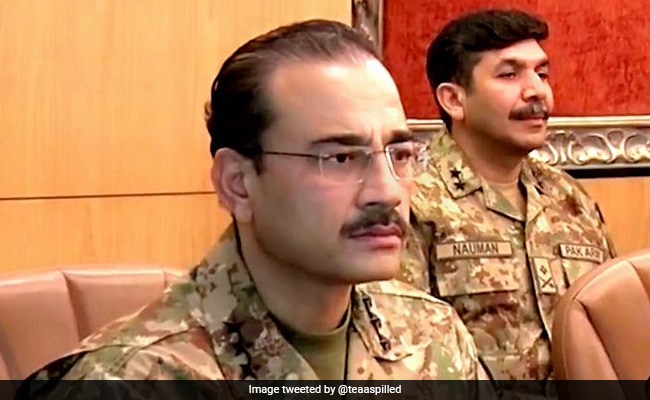
Asim Munir will replace General Qamar Javed Bajwa
Prime Minister Shehbaz Sharif appointed General Asim Munir as Pakistan’s next army chief, a move that could further deepen the nation’s political crisis and exacerbate former premier Imran Khan’s high-stakes clash with the powerful military.
Information Minister Marriyum Aurangzeb announced the appointment on Twitter. Munir will replace General Qamar Javed Bajwa, whose six-year term ends Nov. 29.
The appointment has been sent for approval to President Arif Alvi, who belongs to Khan’s party, Defense Minister Khawaja Asif told reporters. Asif said he doesn’t expect any delays and the president’s approval would come later Thursday.
However, the new appointment is likely to be a setback for Khan, who had removed Munir as chief of the military’s elite spy wing, the Inter-Services Intelligence, within eight months of his appointment. Khan replaced him with an officer considered close to him.
Munir is currently serving at the army headquarters as quartermaster general, overseeing supplies for all military units. Apart from the ISI, he has also led the military intelligence department. He has served under Bajwa’s direct command in the often-troubled northern areas that border Afghanistan, China and India.
The appointment of Pakistan’s army chief is watched keenly because the institution wields outsized influence over the country’s politics — particularly its foreign and defense policies. The army has also directly ruled the nuclear-armed nation for about half of its history since its creation in 1947.
This time the announcement has garnered even more attention as tensions between the military and Khan have soared. The former leader has blamed Sharif of colluding with the US to manipulate his exit from office through a no-confidence vote in April. Meanwhile, Khan accused the army of not doing enough to save his government. It’s a charge all three have denied.
The former cricket star has also named Sharif and a powerful general from the military’s spy wing of being responsible for a shooting attack earlier this month that left him wounded in the leg.
Khan has been leading his supporters in large rallies and marches demanding Sharif hold snap elections — which he is confident of winning after the success he’s seen in recent by-elections. He’s also said earlier that the new army chief should be named by the new government — giving him a chance at making the crucial appointment.
The new chief and the core military leadership “will likely be struggling to manage Khan’s populism and popularity because it could return him to power in the 2023 elections next year,” according to Kamran Bokhari, director analytical development at the Washington-based New Lines Institution for Strategic & Policy.
The markets reacted cautiously to the announcement. The KSE-100 Index gained as much as 0.3% to 42,994.2. Pakistan’s 7.375% 2031 dollar bond was indicated up 0.2 cents to trade at 32.6 cents on the dollar while the rupee traded steady.
Investors are a little concerned about potential delays in the appointment getting the president’s approval, said Adnan Khan, head of international sales at Intermarket Securities Ltd., in Karachi.
Khan’s attempts to control military promotions have been at the root of Pakistan’s recent political tensions. Late last year, he publicly opposed Bajwa’s choice to lead the nation’s spy agency, voicing support for one of his own allies to stay in the role. The army chief eventually got his way, but the incident sowed the seeds for Khan’s ouster roughly six months later.
The new military leader will also have to deal with a revived debate on the role of the institution in nation with a history of civilian rulers being overthrown by the army.
Featured Video Of The Day
Special Analysis: Ashok Gehlot’s No-Holds-Barred Remarks Against Sachin Pilot